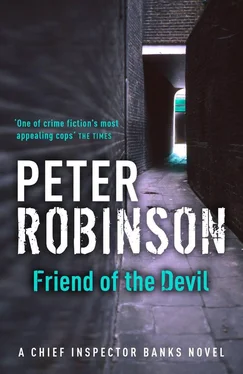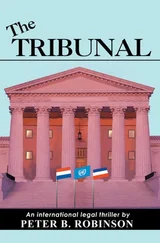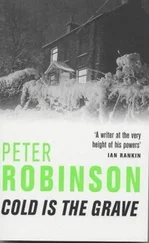“What do you think about the police’s theory?” Annie asked.
“I don’t see it,” McLaren said. “I mean, it might sound weird to you, but I’m just not like that. I don’t think I have it in me. You might think every man does, I don’t know. I suppose you’ve seen it all in your line of work, and you’re a woman, but I don’t. I honestly don’t believe that I would ever attack or attempt to rape a woman.”
Annie had also experienced rape, but she didn’t happen to believe that every man was a potential rapist. “Thanks for your time, Keith,” she said. “You’ve been really helpful. And if it’s any consolation, I don’t believe you’re that sort of person, either.”
“You’re welcome,” said Keith. “And if you’re ever in Sydney, look me up. I’ll treat you to the best seafood you’ve ever had.”
Annie laughed. “I will,” she said. “Take care.”
When she hung up, she held her lukewarm tea to her skin and stared out to sea. Sydney. Now that would be fun. Images of the Harbour Bridge and the opera house that she had seen on television came into her mind. The mist was burning off the sea now and rising in thin wisps to vanish in the air, the sun was brighter, harder to look at, and a green fishing trawler was making its way to shore. A few minutes later, her phone rang again.
Kevin Templeton had lived in a one-bedroom flat in a converted school near the Green, just across the river, not far from where profiler Jenny Fuller lived when she was in town. From his third-floor window, a door led out to a small balcony which gave a magnificent west-facing view of the terraced gardens, up to the majestic ruined castle towering over the scene, high on its hill. Across the Green to the east was the East Side Estate, a blight on the face of Eastvale, but a source of continuing employment for Banks and the rest at Western Area Headquarters. It was mostly obscured by trees, but you could see the rows of identical redbrick boxes between the bare branches.
The flat was an empty shell, Banks thought as he stood in the living room, and one that didn’t give away a great deal about its occupant. The furniture was all modern, probably from Ikea or some similar flat-box merchant, no doubt pieced together in a flurry of activity one weekend with an Allen key, a six-pack of cheap lager and a great deal of swearing.
There was a DAB radio, but no stereo system or CDs. A widescreen TV dominated one wall, and beside it stood a bookcase crammed with DVDs. A lot of sports, Banks noticed, some blockbuster movies and a few American TV series, such as The Simpsons, 24 and CSI . There were a few books, too, mostly tattered paperbacks by Ken Follett, Jack Higgins, Chris Ryan or Andy McNab, along with some texts on criminal law and American tomes on investigative procedure. There were no framed family photographs on the mantelpiece, and the only wall decoration was a cheaply framed poster for Psycho that Banks remembered had been given away free in a newspaper just last year.
The toilet-and-bathroom combination revealed the usual things — shampoo, toothpaste, paracetamol, hair gel, razor, shaving cream and so on. No prescription drugs. The towel that hung over the side of the bath was still damp, and beads of moisture dotted the sides and bottom of the tub and wall tiles.
In the kitchen, Templeton’s freezer was empty apart from a tray of ice cubes, and in the fridge Banks found milk, eggs, cheese, HP Sauce, tomato ketchup, the remains of an Indian takeaway and a Tupperware container of leftover spaghetti Bolognese. There was also a wine rack full of Tesco’s and Sainsbury’s wines — pretty good ones, too, Banks noticed — and a fairly expensive espresso-making machine.
Which left the small bedroom, with its double bed and night table with shaded lamp, and one large wardrobe full of clothes and shoes. The suits were good quality. Not exactly Armani or Paul Smith, but Banks would have been very suspicious if Templeton had owned such expensive clothing on a detective sergeant’s salary. The only photograph in the flat stood on his dressing table under the window. It showed a young girl, perhaps eighteen or nineteen, her long hair blowing in the wind, hand held up to hold it out of her eyes, smiling at the camera, squinting slightly in the sun, autumn leaves swirling around her. Banks had no idea who it was or why Templeton kept it in his bedroom. A girlfriend, perhaps? He had never talked about his private life.
There was nothing but loose change, condoms and pen and paper in the night-table drawer. A digital alarm clock set for 6:00 A.M. stood on top.
Banks went back into the living room and sat at Templeton’s desk. The laptop computer was password-protected and would have to go down to technical support for analysis. Banks riffled through the drawers and found a stack of ledger-sized notebooks filled with Templeton’s neat but crabbed hand. Entries were dated, like a diary, but all Templeton wrote about was the cases he worked on. Banks checked the most recent ledger and found that Templeton had written up what he had done on Friday night:
0000h.
Entered Maze via car park entrance. Light poor. Buildings high, many overhanging. Impossible to keep an eye on the whole place. Distant sounds from square as the pubs close. Nobody comes here. No footsteps.
0023h.
Hear snatch of the Streets “Fit But You Know It” from a car whizzing by, or a door opening and closing, then it’s gone. Muffled dance music from inside the Bar None. More waiting. More nothing. Still sure I’m right. Killer will strike again, and what a good way of having a laugh at us it would be if he did it the following week, in the same place!
Summary: Hung around until two o’clock and nothing happened. When the town had been silent for half an hour and it was clear that neither killer nor victim was going to come here tonight, I decided to end the surveillance for this evening.
So Banks’s theory about Templeton privately policing the Maze had been right. Not that it was any great consolation in the face of the young lad’s murder. Banks took one more glance around the flat, then he locked up and headed back to the station, taking the ledger with him.
It was a long drive to Eastvale and Annie wasn’t entirely sure that it was justified, but what Banks had said over the phone had intrigued and disturbed her enough. There had been no way she was going back to bed after Keith McLaren’s phone call, anyway, no matter how tired she felt. And so she meandered over the moors that Sunday morning, with hardly any traffic to slow her down. The sun had burned off the morning mist completely by then, and it was a freshly scrubbed spring day.
When Annie walked into the Western Area Headquarters at about half past ten, she could sense the strained and melancholy atmosphere. Even if Banks hadn’t told her, she would have known immediately that a policeman had been killed. There was no other atmosphere like it. People bent over their tasks with gritted teeth, tempers were short and over it all lay a pall of shock and outrage.
Banks was in his office with Winsome standing beside him as he shuffled through a pile of papers on his desk. He stood up to greet Annie, and she could detect none of the hostility from him that she might have expected after their last meeting. That only made her feel worse. He ought to hate her. Of the two, only Winsome seemed frosty. She left almost immediately after a brusque “hello.” Banks gestured for Annie to sit down and called for coffee.
“Sorry I rang so early,” he said. “I hope you didn’t have a wild night on the town last night.”
“Why would you think that?” Annie said.
“No reason. It was Saturday night, that’s all. People do tend to go out. Or maybe you stayed in with your boyfriend?”
Читать дальше












